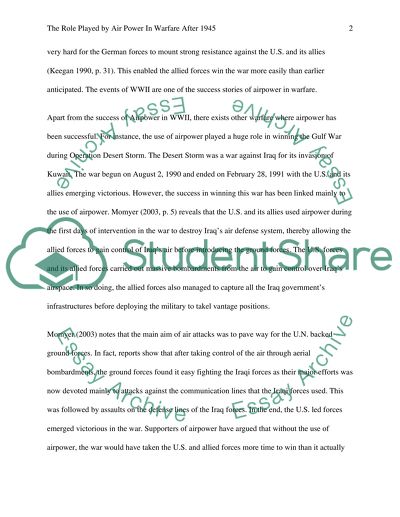Cite this document
(“What role has air-power played in warfare after 1945 Essay”, n.d.)
Retrieved from https://studentshare.org/military/1496611-what-role-has-air-power-played-in-warfare-after
Retrieved from https://studentshare.org/military/1496611-what-role-has-air-power-played-in-warfare-after
(What Role Has Air-Power Played in Warfare After 1945 Essay)
https://studentshare.org/military/1496611-what-role-has-air-power-played-in-warfare-after.
https://studentshare.org/military/1496611-what-role-has-air-power-played-in-warfare-after.
“What Role Has Air-Power Played in Warfare After 1945 Essay”, n.d. https://studentshare.org/military/1496611-what-role-has-air-power-played-in-warfare-after.


